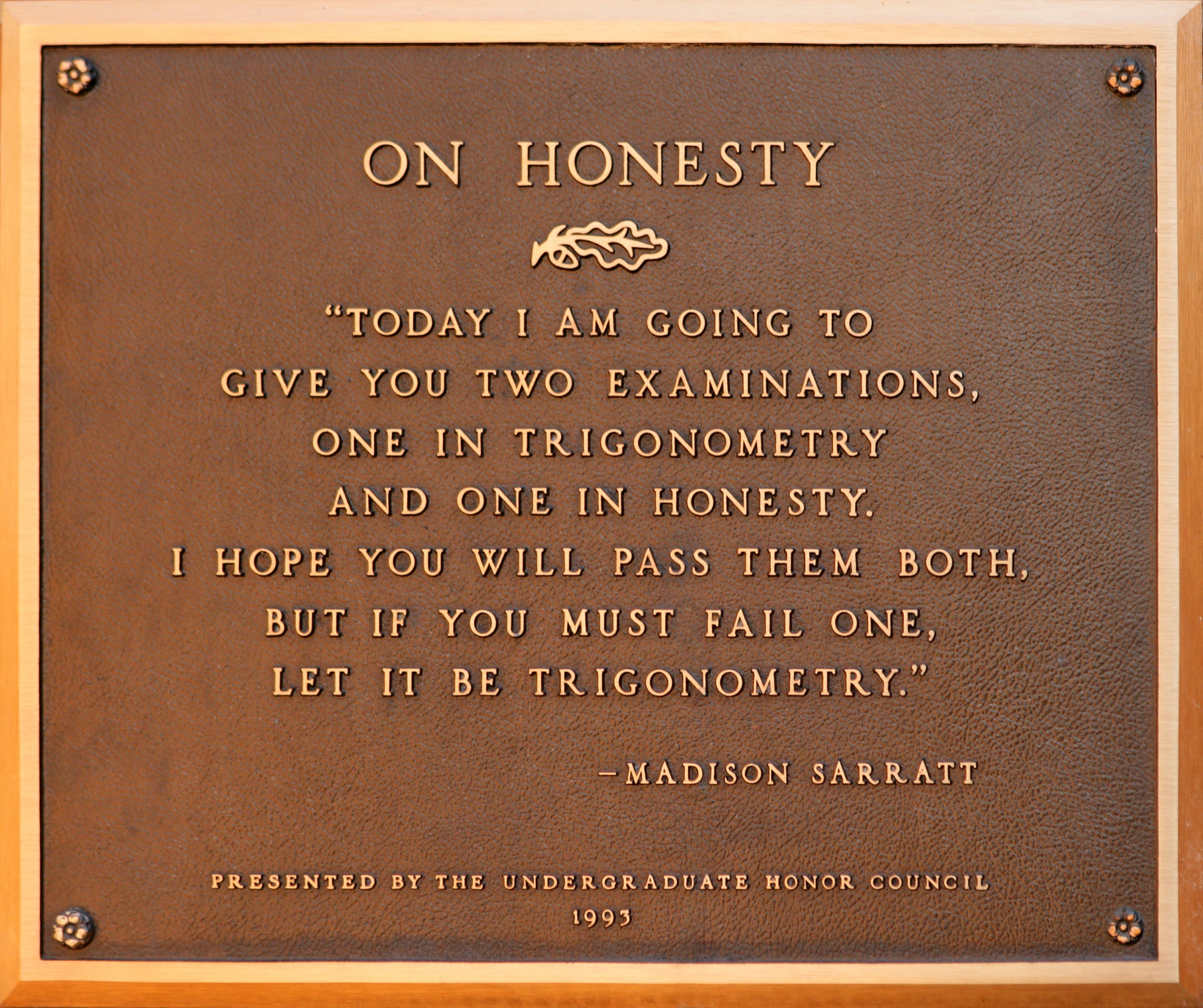
Faculty Role Under Our Code of Academic Conduct
Our Code of Academic Conduct highlights the faculty's critical role in ensuring academic integrity. Under the Code, faculty responsibilities include encouraging honesty and integrity in students; informing students of ethical, scholarship and conduct standards; using test and assignment formats that discourage cheating; reporting alleged violations to OSSJA; and telling students how to make reports.
In addition, faculty participate in policy-making regarding student conduct standards as well as in the disciplinary process. Faculty also serve on all formal hearing panels that adjudicate cases of disputed academic misconduct.
Reporting
Reporting cases to the Office of Student Support and Judicial Affairs (OSSJA) ensures consistency and fairness in the process. Maintaining central records also ensures appropriate consequences for repeat offenders. The conduct process emphasizes education, personal growth, ethical decision making, and accountability.
- Contact OSSJA if you would like to consult: (530) 752-1128 or ossja@ucdavis.edu.
- Submit a report through ossja.ucdavis.edu. Click on "Report Misconduct".
- OSSJA will review the report and contact you if more information is needed.
- If the quarter ends before the conduct process is completed, assign a temporary grade of “Y”.
Meeting(s) with Student
OSSJA directs the student to schedule an appointment.
- OSSJA meets with student, explains the report, and allows the student to respond.
- OSSJA follows up with you about the meeting with the student. The student may have admitted to the violation or did not admit and provided information that OSSJA would like you to review prior to a second meeting with the student.
Resolution by Agreement
Most cases (98%) are resolved through agreement in one of the ways described below:
- Student accepts responsibility. OSSJA informs you and explains appropriate disciplinary sanctions. The student signs a disciplinary agreement and OSSJA provides you with a final copy. If the student does not have a prior disciplinary history, OSSJA generally does not suspend or dismiss the student for a first violation. The student may be placed on probation and required to complete educational assignments or attend workshops. If the student has prior violations, then suspension or dismissal is considered.
- Student does not accept responsibility and provides information that satisfies you that the student is not responsible. The case is then closed out with a finding of "not in violation."
- Student does not accept responsibility and you do not want to pursue the matter further, despite remaining doubts. OSSJA sends the student a non-disciplinary Administrative Notice or warning.
Formal Hearings
If the student does not accept responsibility and the evidence is reasonably strong, the instructor and OSSJA consult about whether it makes sense to pursue the matter; if so, OSSJA charges a formal hearing. Less than 2% of cases proceed to a formal hearing.
- A formal hearing is not a trial.
- You and the reported student present information to a panel composed of two students and one faculty member; these Campus Judicial Board members are trained to conduct hearings and have no prior involvement in the case.
- You are not expected to be a prosecutor. You explain the information and reasons why you believe academic misconduct occurred.
- The panel, the reported student, and you may all pose questions.
- The panel deliberates in private and decides whether the student violated the Code of Academic Conduct.
- The "standard of proof" used is not "Beyond a Reasonable Doubt," as in the criminal court system, but "Preponderance of the Evidence," as used by the civil court system and most colleges and Universities.
- The Director of OSSJA sends a decision letter, assigns disciplinary sanctions if appropriate, and describes any appeal rights.
Grades
If a student accepts responsibility or is found in violation at a formal hearing, you may assign a grade penalty up to and including an “F” for the entire course, regardless of how many points the assignment/exam/paper/etc. was worth. If a “Y” grade was assigned, calculate and enter the final grade after the case has been resolved.
Note:
- A student is considered "not in violation" unless the student admits to the misconduct or is found in violation at a formal hearing.
- A student may remain silent and this cannot be used as evidence that the student is in violation (guilty).
If a student does not participate in the process, OSSJA may place holds, impose unilateral action, or proceed with a formal hearing.
Edited 6/4/2024 by MLA
